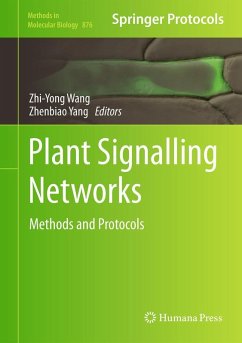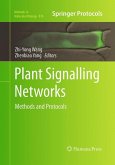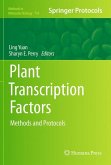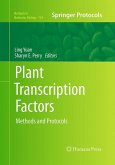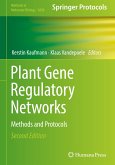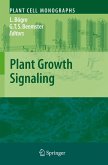Signal transduction is the fundamental mechanism for regulation of cellular activities by environmental cues and regulatory signals, and is particularly important for plants, whose survival requires proper physiological and developmental responses to the environmental changes. Much progress has been made recently in the plant signal transduction research field thanks to the development of diverse techniques which are covered in Plant Signalling Networks: Methods and Protocols. These include advanced research methods such as proteomics and mass spectrometry methods for studying protein modification, biochemical and cell biological tools for studying protein-protein interactions, genomic techniques for dissecting protein-DNA interaction and transcription networks, and computation methods that integrate molecular network into plant developmental processes. Written in the successful Methods in Molecular Biology(TM) series format, chapters include introductions to their respectivetopics, lists of the necessary materials and reagents, step-by-step, readily reproducible protocols, and notes on troubleshooting and avoiding known pitfalls.
Plant Signalling Networks: Methods and Protocols presents well-honed methodologies for a wide range of research approaches including genetics, proteomics, biochemical, cell biological, and computational approaches, and seeks to serve both professionals and novices with a comprehensive understanding of complex signaling networks in plants.
Plant Signalling Networks: Methods and Protocols presents well-honed methodologies for a wide range of research approaches including genetics, proteomics, biochemical, cell biological, and computational approaches, and seeks to serve both professionals and novices with a comprehensive understanding of complex signaling networks in plants.
From the reviews:
"This protocol book is a good overview across various research approaches such as genomics, proteomics, metabolomics, and bioinformatics. Its methods are elaborate and clear, and most of the chapters provide specific hints and notes to increase the success of the experiments. This book will long stand as a guide to plant signaling networks, and it can be taken as a useful vademecum to the lab for the more experienced user." (Peter Schröder, Plant Science Bulletin, Vol. 59 (1), 2013)
"This protocol book is a good overview across various research approaches such as genomics, proteomics, metabolomics, and bioinformatics. Its methods are elaborate and clear, and most of the chapters provide specific hints and notes to increase the success of the experiments. This book will long stand as a guide to plant signaling networks, and it can be taken as a useful vademecum to the lab for the more experienced user." (Peter Schröder, Plant Science Bulletin, Vol. 59 (1), 2013)

